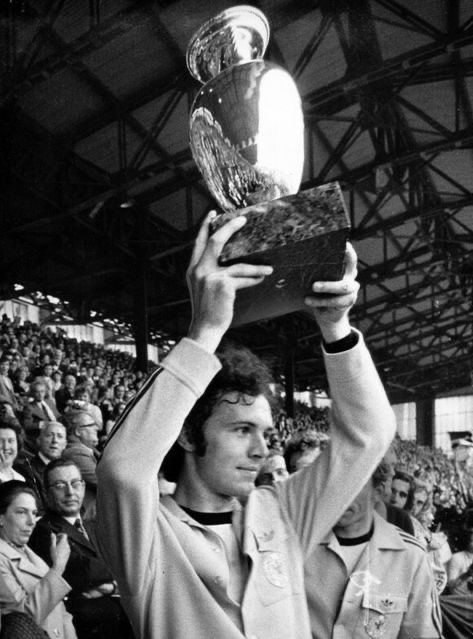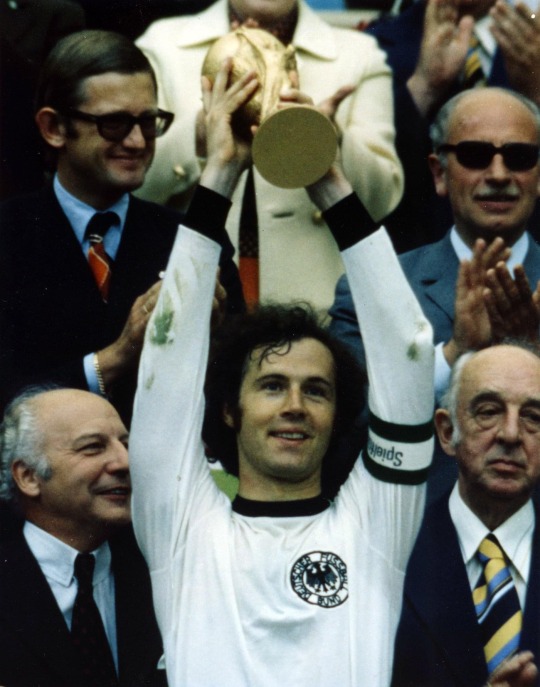#franz beckenbauer
Text
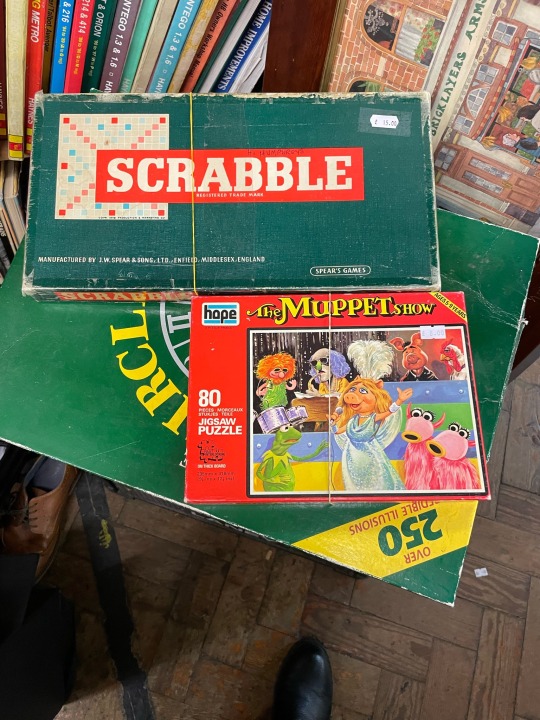


Empire Exchange, Manchester.
113 notes
·
View notes
Text
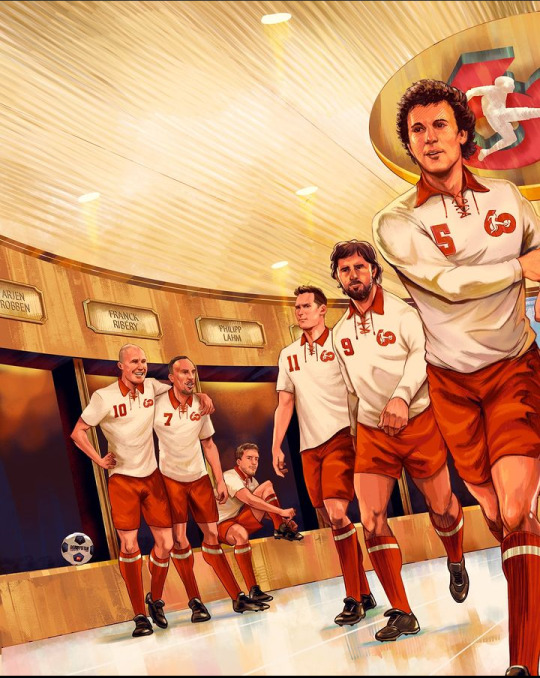
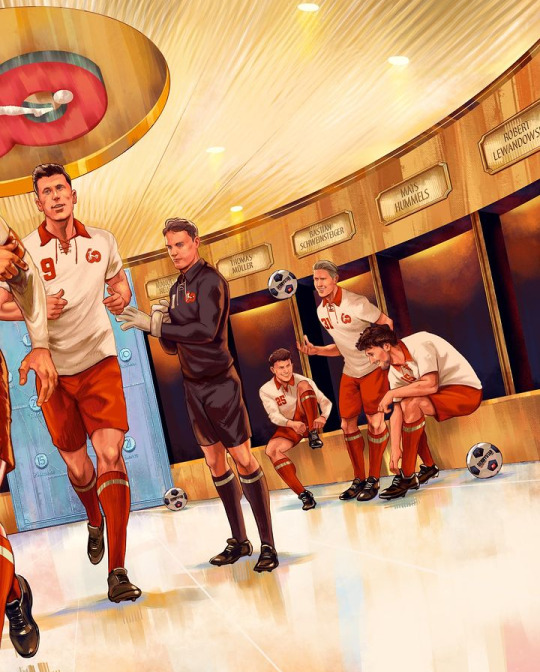
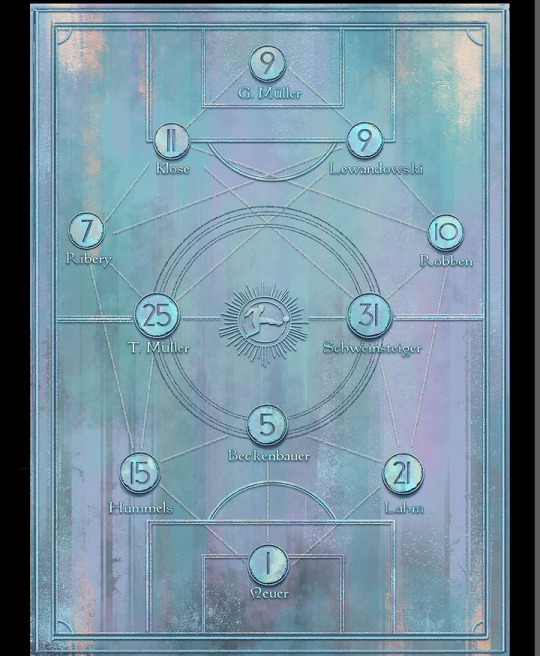
The Bundesliga 60 anniversary XI
#this is so pretty#😭😭😭😭😭😭😭😭😭😭😭#manuel neuer#mats hummels#philipp lahm#franz beckenbauer#thomas müller#bastian schweinsteiger#franck ribery#arjen robben#miroslav klose#robert lewandowski#gerd müller#fc bayern münchen#bundesliga
62 notes
·
View notes
Text
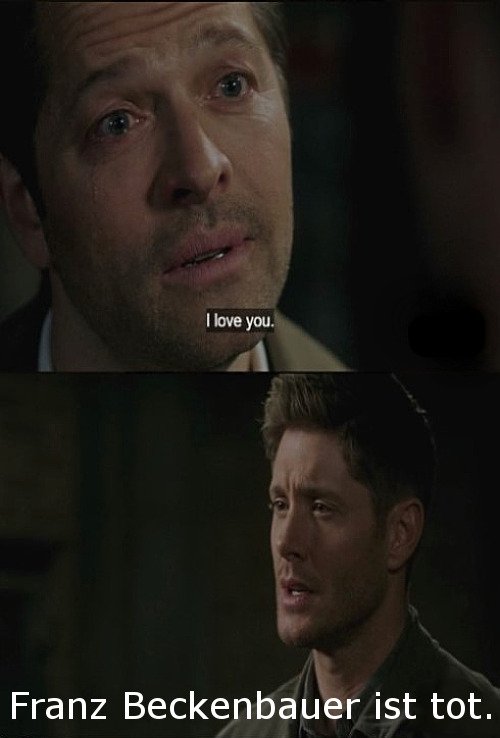
48 notes
·
View notes
Text
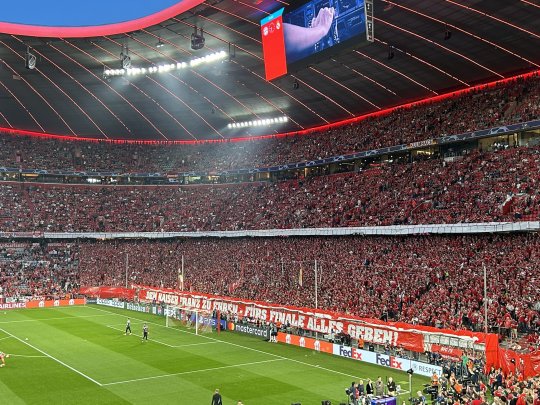
😭😭😭😭
24 notes
·
View notes
Text
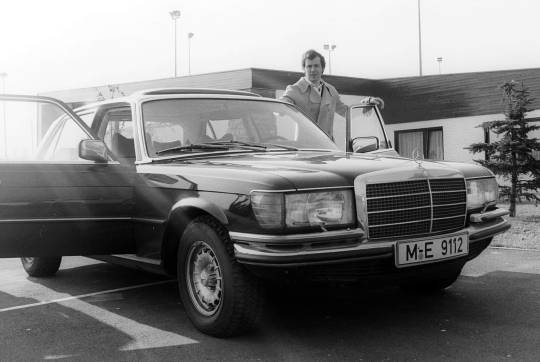
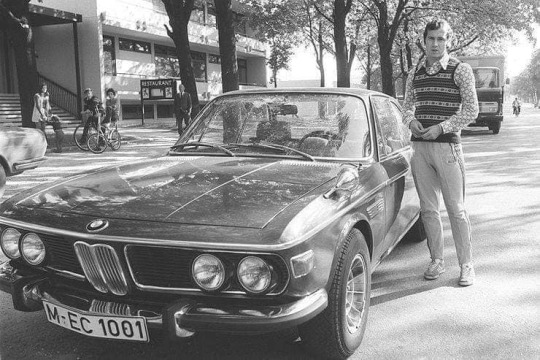
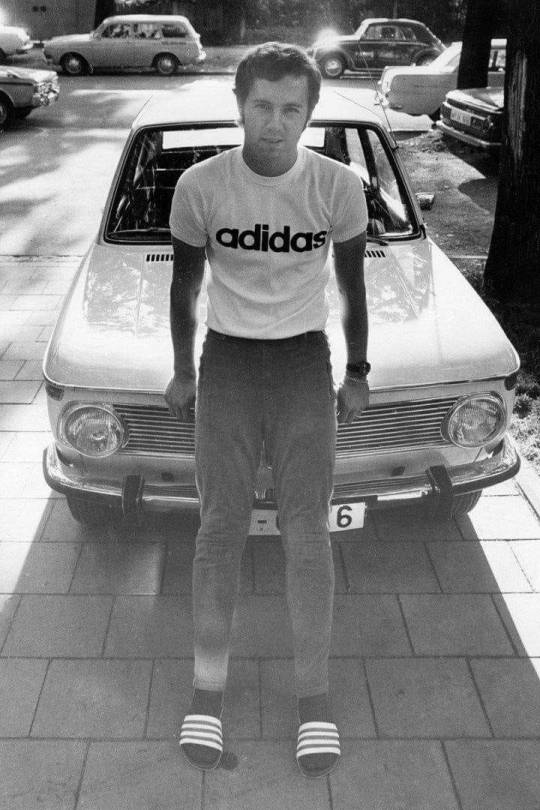
RIP Franz Beckenbauer 1945-2024.
source Cars & Motorbikes Stars of the Golden era.
50 notes
·
View notes
Text
Football legend Franz Beckenbauer has sadly passed away

Franz Beckenbauer has died at the age of 78, his family has confirmed.
Beckenbauer enjoyed a long career in football as both a player and manager after coming through the Bayern Munich youth system in 1964. He played for the Bavarian outfit, in the city where he was born, for 13 years winning countless trophies including two Ballons d'Or.
The Bavarian defender is best known for his exploits with his national team and was a huge part of the West Germany side that won the World Cup in 1974.
After two brief spells in New York either side of two years at Hamburg, Beckenbauer retired from playing and became a manager - taking charge of West Germany in his first job, where he won the World Cup.
#Franz Anton Beckenbauer#franz beckenbauer#die mannschaft#fc bayern#bayern munich#bayern münchen#NY Cosmos#football#fußball#fussball#foot#voetbal#futbol#futebol#soccer#calcio
38 notes
·
View notes
Text
RIP 'DER KAISER'

Franz Beckenbauer. 1945 - 2024. Won the World Cup as captain in 1974 and as manager in 1990. Twice Ballon d'Or winner. Bayern Munich and Germany legend.
Rest in peace, immortal of the game.
36 notes
·
View notes
Text
R.I.P Kaiser 💔
35 notes
·
View notes
Text
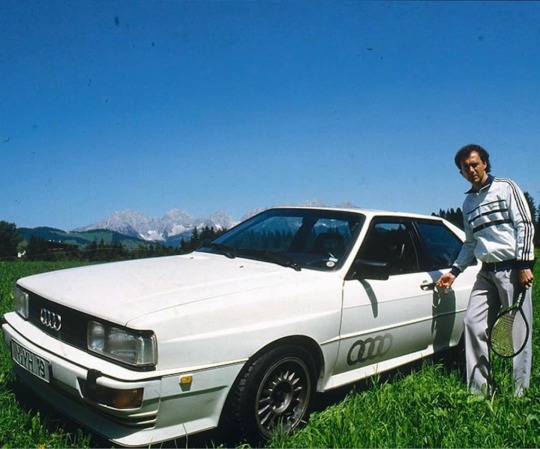
40 notes
·
View notes
Text

Franz Beckenbauer, who has died aged 78, was widely regarded as the best footballer Germany has ever produced. A pre-eminent figure in the world game after the second world war, he was a phenomenally innovative player who captained West Germany to a World Cup win in 1974 and later managed his country to two consecutive World Cup finals, winning the second of them in 1990 in Rome.
As a club manager he added a Bundesliga title and a Uefa Cup win to his World Cup victory at international level and as a player he won a World Cup, a European Championship, three European Cups and five Bundesliga titles in Germany. However, more than his capacity for winning, it was the elegant, intelligent nature of his play that attracted such admiration all over the world.
While he was still a teenager at Bayern Munich, Beckenbauer had become the virtual inventor of what came to be called “total football”. Watching the Milan team Internazionale on television, he was impressed by the attacking forays of their big left-back, Giacinto Facchetti. He asked himself why a defender might not attack from a central role as well as from the flanks, and thus became Bayern’s attacking libero. It was a role that became the cornerstone of the total football practised by Bayern and their great Dutch rivals, Ajax, in the early 1970s.
Captained by Beckenbauer – a tall, erect figure always ready to sweep out of defence – Bayern at first played second fiddle to Ajax, but eventually emulated them by winning the European Cup three times in a row, between 1974 and 1976. Before that sequence Beckenbauer had already captained an outstanding West Germany team to the European Championship title in 1972, beating the Soviet Union 3-0 in the final. Two years later he led his country to victory in the 1974 World Cup on German soil, defeating the Netherlands 2-1. He played 103 times for West Germany and appeared in 427 league matches for Bayern.
Franz was born to Antonie (nee Huphauf) and Franz Sr, a postal worker in the Munich suburb of Giesing, near the stadium where he would make his name. By the age of eight he was already regarded as a technically accomplished player, even in a city where footballers and football proliferated. Munich 1860 was the club he favoured; Bayern Munich, where he would later excel, were small beer at the time; an upstart by comparison.
However, Munich 1860’s loss would be Bayern’s gain. In 1958 he was playing for the junior team of a little local club, SC 1906, which actually closed that year, and expected to join 1860. “But in the last game we played for SC 1906 against 1860,” he related, “a half-back gave me a slap. That was enough for me. 1860 would never get me. And so Bayern took me into its ranks.” Beckenbauer was, with rare exceptions, always a sporting player, who declared that he would rather be fouled and leave the field than commit a foul himself.
He made his debut for Bayern Munich in 1964 – when they were in the German second division – and in his first season helped them gain promotion to the Bundesliga.
Thereafter Bayern rapidly became a major force both at home and in Europe, winning the German Cup in 1966–67 and the European Cup Winners’ Cup in 1967 (against Rangers). Beckenbauer was made team captain for the 1968–69 season and led the club to its first league title that year, subsequently winning three league championships in a row from 1972 to 1974 and that hat-trick of European Cup wins in 1974-76.
Under his leadership (he was nicknamed the Kaiser for his commanding, almost imperious presence) the Bayern team of that era, which also featured greats such as the goalkeeper Sepp Maier and the centre-forward Gerd Müller, established itself as one of the most accomplished club sides of all time.
Beckenbauer’s first game for the national team, at the age of 21 in 1965, had come even before Bayern’s dramatic rise to prominence. He was the star member of the West Germany side in the 1966 World Cup finals, where they were runners-up in the Wembley final to England, and again in the 1970 finals in Mexico, where they finished in third place.
Helmut Schön, the tall, gentle West Germany team manager who was almost a father figure to Beckenbauer, for many years refused to let him play the libero role for his country. When he finally relented in 1974, West Germany won the competition and Beckenbauer lifted the trophy as captain.
All seemed set fair for a fourth World Cup campaign for Beckenbauer in Argentina in 1978, but to general surprise, and aged only 31, he retired from international football in 1977 to switch to play for New York Cosmos in the North American Soccer League.
It was an unusual move after almost 15 years at the highest level of the game with Bayern, but the contract was lucrative and enormous crowds came to see him play with Pelé and other stars at the Giants Stadium, New Jersey.
In his four seasons with the Cosmos the team won the national Soccer Bowl on three occasions (1977, 1978 and 1980). “I’ve done everything in my life – championships for Bayern Munich and the World Cup for Germany – but the New York Cosmos was the best time of my life,” he said. “At Munich it was all German players; at the Cosmos it was 14 nationalities and Pelé.”
He returned to Germany to play for Hamburg (1980-82), where he picked up another Bundesliga winners’ medal at the end of the 1981-82 season before going back to the US for one final campaign with the Cosmos in 1983 and then retiring. In his career in domestic leagues he had made 587 appearances and scored 81 goals.
When Beckenbauer retired he seemed to have no ambition to go into management, so it was a surprise that in 1984 he agreed to manage West Germany in succession to Jupp Derwall. Never before had a West Germany manager been appointed who had not come through the exhaustive qualifying programme of the German football association, one which involved not only the passing of examinations but the running of minor clubs.
In appointing Beckenbauer, the German authorities were abandoning firm principle in the hope that his immense prestige and authority would prevail; and they were not disappointed.
The team he inherited was in the doldrums, yet at the 1986 Mexico World Cup, suitably inspired, they reached a final in which they were plainly inferior to an Argentina team that went into a 2-0 lead, only for the Germans to fight back, catch them up, and then lose 3-2. Four years later, in a grisly final in Rome, Germany had their revenge, beating Argentina 1-0 with a penalty by Andreas Brehme.
Shortly afterwards Beckenbauer resigned his position to became technical director of the French club Marseille on a two-year contract worth nearly £500,000, taking a German physical trainer with him. But for once his writ did not run. The French players were unhappy with the training regime and Beckenbauer withdrew after just four months.
He was far happier when he returned to Bayern Munich to serve as manager over two short spells – in 1993-94 and in 1996 – during which time he collected two further honours, the Bundesliga title in 1994 and the Uefa Cup in 1996. Thereafter he was president of the club for two years.
In 1998 he became vice-president of the German football association and at the end of the 90s headed the successful bid by Germany to host the 2006 World Cup, chairing the subsequent organising committee. He was named honorary president of Bayern Munich in 2009, a position he held until his death.
His son, Thomas, with Ingrid Grönke was born in 1963. In 1966 he married Brigitte Wittmann. They had two sons, Michael and Stephan. Following their divorce in 1990, he married Sybille Weimer; they divorced in 2004. With his third wife, Heidi Burmester, he had two children, Noel and Francesca. Stephan, who was also a footballer and played for Bayern Munich, died in 2015. Franz leaves Heidi and his four other children.
🔔 Franz Anton Beckenbauer, footballer, born 11 September 1945; died 7 January 2024
Daily inspiration. Discover more photos at Just for Books…?
22 notes
·
View notes
Text
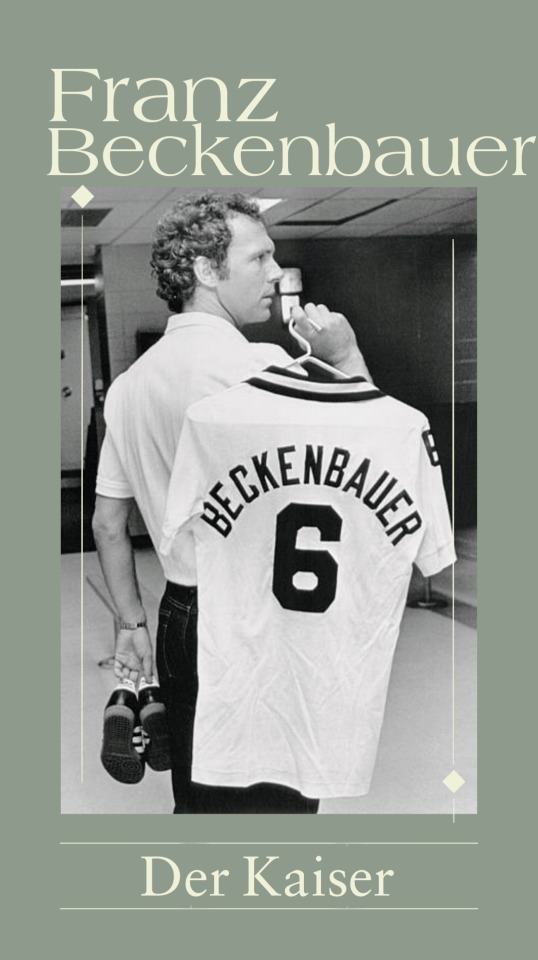
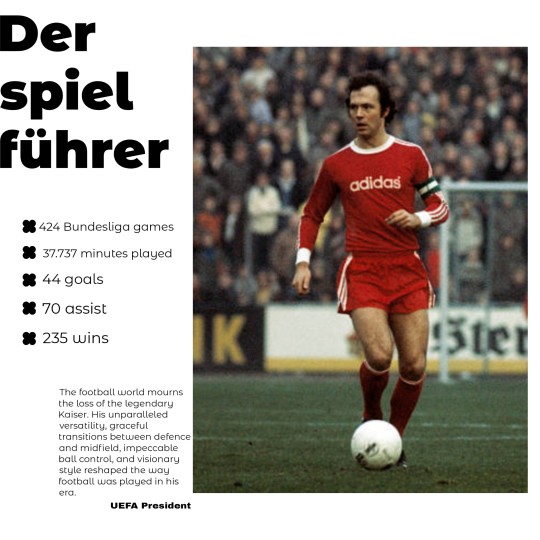
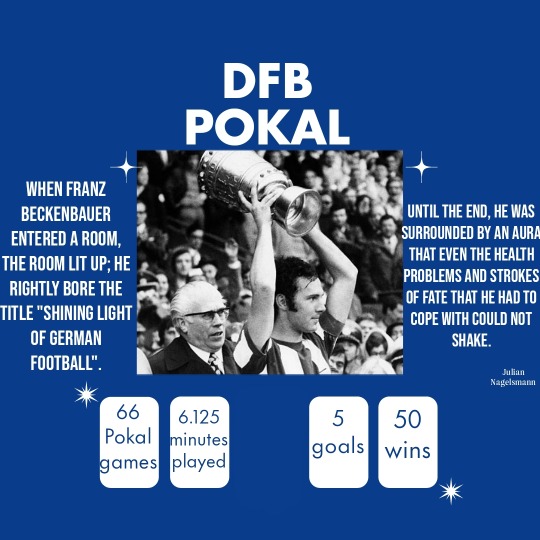
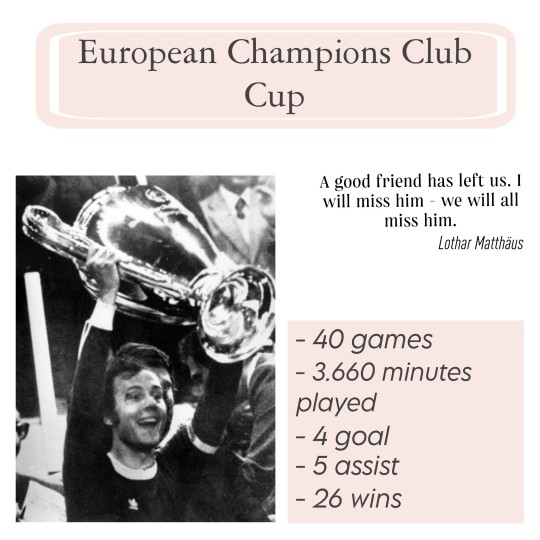
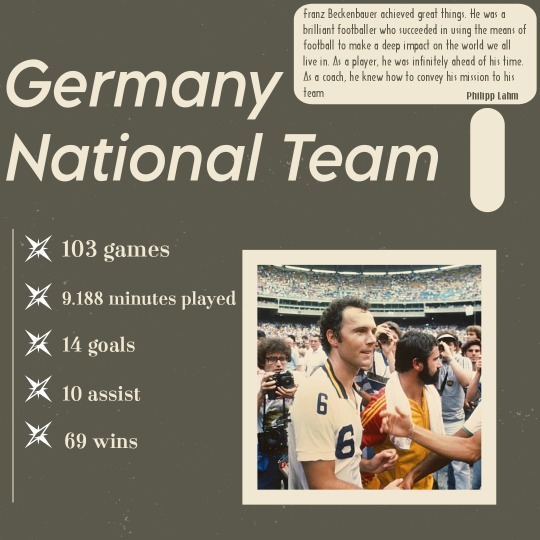
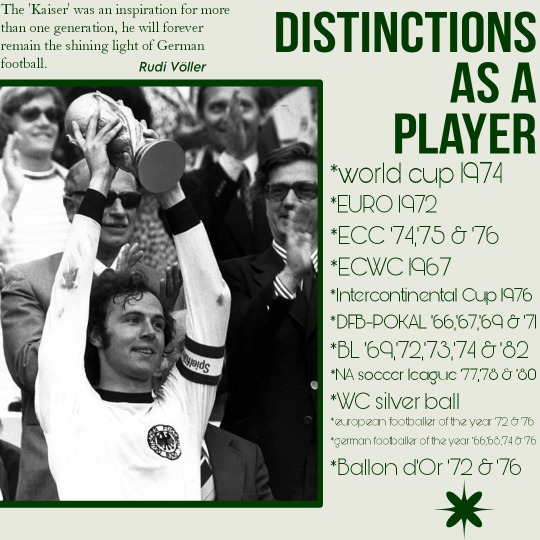
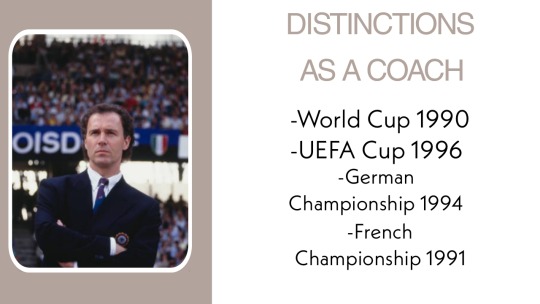
Ruhe in Frieden Kaiser
#franz beckenbauer#fc bayern münchen#hamburg sv#new york cosmos#olympique de marseille#german nt#graphs
43 notes
·
View notes
Text
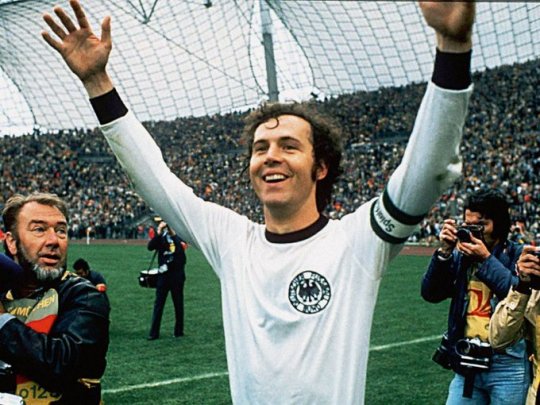
Ciao Kaiser
21 notes
·
View notes
Text
A football legend Franz Beckbauer passed away at 78. RIP 🙏

17 notes
·
View notes
Text
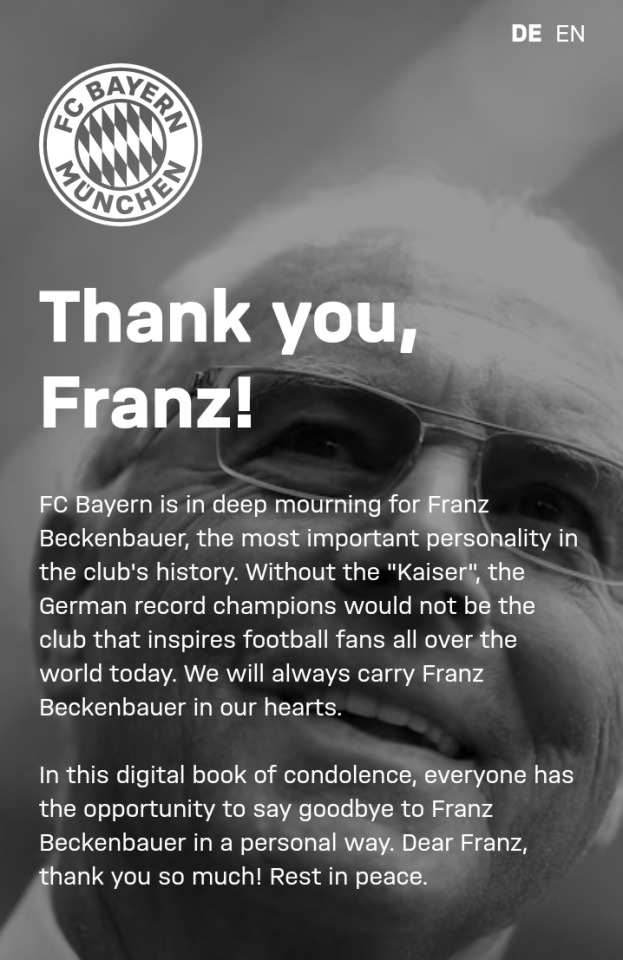
You can leave your condolence message here.
FC Bayern München AG collects and processes personal data to display your name and your condolences, as well as for internal purposes. Your contributions may be archived in a condolence book in printed and / or digital form and can also be viewed by third parties.
You can consent and revoke to the data processing as described above at any time with effect for the future. You revocation will not result in any changes to the printed version of the condolence book.
Your expression of condolence will be editorially checked to prevent misuse. You can sign the online condolence book until January 31st, 2024.
16 notes
·
View notes
Text
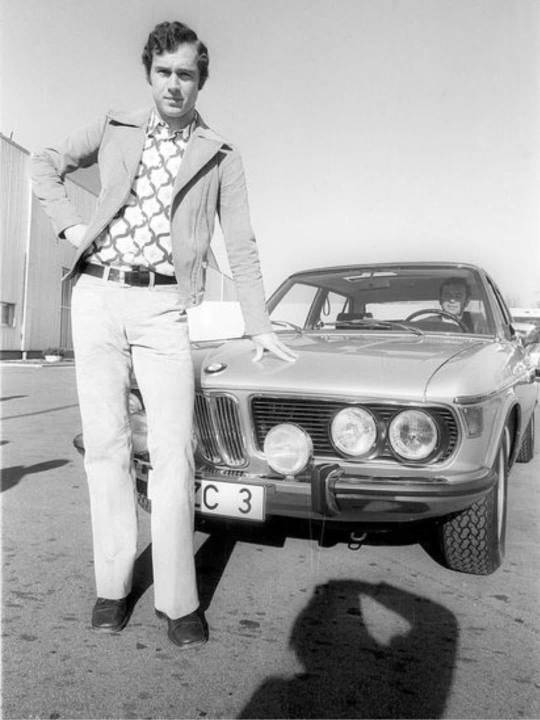
Franz Beckenbauer et sa BMW 3.0 CSI 1968. - source Cars & Motorbikes Stars of the Golden era.
29 notes
·
View notes
